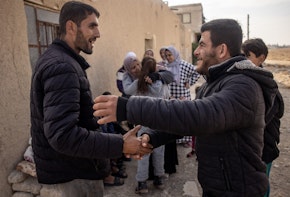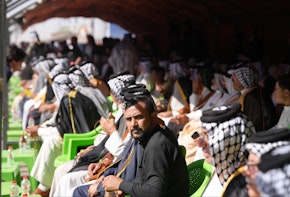A slow erosion of democratic practices has been reshaping Israel for about a decade. The attempt to characterize these changes has led to confusion about why the erosion is happening and what it means. The terms “fascist” and “authoritarian,” bandied about carelessly by critics of Israel’s government, are not only inaccurate, but offer little insight into the purpose and direction of the changes. Further, there have been significant illiberal eras of Israeli politics and society in the past, especially during its first few decades. This report considers why the current illiberal trends are different, and where they may take the country in the future.
When the specific forms of injury to democratic values are analyzed in light of developments vis-à-vis the Palestinians, it becomes clear that the redefined, less liberal, more ethnocratic political culture is poised to perpetuate annexationist trends that Israel has been advancing in the West Bank. Annexationist policies also hasten the collapse of any remaining potential for Palestinian statehood.
For a decade, the Israeli government has targeted and intimidated civil society, passed legislation to discriminate against minorities, and targeted the tools used for protest or protection—the media, the judiciary—while relentlessly redefining democracy in public rhetoric as unconstrained majority rule. The next government might well continue to translate such rhetoric into policy.
This report argues that Israel’s slide into illiberal democracy can only be understood as part of an attempt to go beyond military or physical control and establish a political and legal foundation for permanent annexation of both land and people.
The assault on Israel’s democratic norms over the past decade initially appeared only indirectly related to a future of permanent annexation, as they suppressed the mechanisms of dissent and undermined the basis for minority rights. Then, in the recent elections, Prime Minister Benjamin Netanyahu made explicit his goal to annex occupied territory in the West Bank, which represented the culmination (to date) of increasingly open policies and legislative initiatives from the previous term that explicitly advance annexation. This shift to an overt annexationist policy makes it more urgent to understand the connection between a changed democratic culture and designs of permanent annexation. It then follows that any attempt to counteract the illiberal trends through insistence on equality, human rights, and civil rights must address all people affected by the fact of permanent Israeli control. The Palestinian Authority has limited powers and declining capacity—and, more importantly, is not truly independent from the government of Israel. Perpetuating a fiction that there are two functioning governments or state entities, and that Israel is not responsible for the Palestinians living under its control, will render any such analysis ineffective.
Illiberal Democracy
Illiberal democracy was aptly characterized by one early observer of the phenomenon, Fareed Zakaria: “Illiberal democracies gain legitimacy, and thus strength, from the fact that they are reasonably democratic.”1
For Israel’s citizens, the “reasonably democratic” case is easy enough to make. In the past half-year alone, Israel held both local and national elections. Both were mostly fair and peaceful, and if the national poll did not lead to a change of power, it was certainly competitive. In 2019, a record of forty-one parties competed for approximately 4.3 million votes, reflecting a turnout of over 68 percent. The elections were covered by a boisterous media, and the opposition party, Blue and White, won near-parity with the winner, the incumbent Likud.2
However, Israel has mastered the art of encouraging or allowing its society to release all the steam needed in order to cloud any collective vision about the genuine injury to democracy that has been taking place for roughly a decade. The government is not stripping democratic norms or basic human rights from its citizens by force, and so making accusations of “fascism” and “authoritarianism” are inappropriate. Instead, on close examination, it is more accurate to characterize the changes as a conscious, concerted redesign of democracy, in specific ways that contribute to a much longer-term political goal.
The government is not stripping democratic norms or basic human rights from its citizens by force, and so making accusations of “fascism” and “authoritarianism” are inappropriate.
Over roughly the past decade, a series of laws and policies have been strengthening the dominance of the majority at the expense of minority rights, protections, and recognition, and weakening checks and balances in government and civil society, making Israel more ethnocentric, less universalist, and less liberal.
These legal and policy shifts are accompanied by heated discourse, the course of which has succeeded in, changing the normative expectations about what democracy ought to be. The majority opinions in these public debates over illiberal reforms have hammered home the idea that undermining democratic institutions is merely a corrective to flaws in Israel’s system. Reckless rhetorical attacks on the Arab minority, as well as the political minority—left wingers—have led substantial numbers to support policies directed against both, often in the name of “majority rule.” The election result showed majority support for leaders representing the continuation of both the policy and perspective that liberal aspects of Israeli society need to be reined in. The emerging version of an ethno-nationalist democracy appears, to many citizens and their elected representatives, increasingly justified and desirable—or, simply, normal.
Israel, of course, has historically had an ethno-nationalist identity, which was always in tension with utopian universalist ideas. But the specific nature of illiberal trends and democratic erosion in Israel today does not look like the continuation of ongoing historic tension between a Jewish identity and liberal universal norms in its modern chapter. Rather, the erosion is part of a process of fundamentally re-reshaping the kind of country Israel will be—its borders, and its population—in the future. The changes will affect a much broader population than Israel’s current citizens.
The erosion is part of a process of fundamentally re-reshaping the kind of country Israel will be—its borders, and its population—in the future.
To understand the logic of the specific form and timing of democratic erosion in Israel, it is essential to look beyond the Green Line, the 1949 Armistice line following Israel’s War of Independence, which left the West Bank, Gaza, and East Jerusalem outside of Israel’s control until 1967. For one thing, over 600,000 Israeli citizens live beyond the Green Line, making any assessment of Israel limited to its areas of formal territorial sovereignty irrelevant.
Further, for years, Israel has been implementing de facto annexation in parts of the West Bank. Calls for formal annexation in some form have moved from the margins to the mainstream of Israel’s right-wing. The most recent Israeli election campaign removed any remaining doubt, with two watershed developments: U.S. President Donald Trump’s recognition of Israeli sovereignty over the Golan Heights, and Israeli Prime Minister Netanyahu’s late-hour declaration that he supports sovereignty over all settlements.
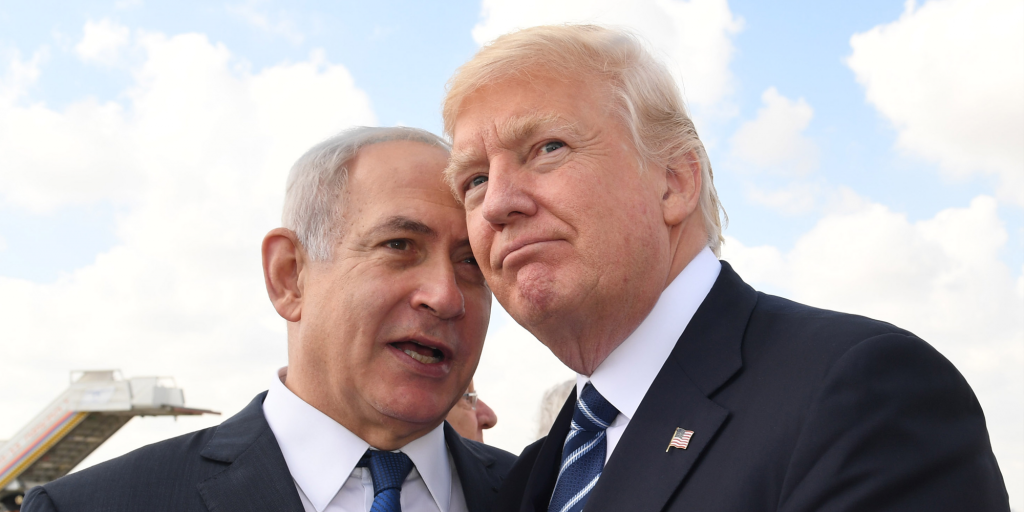
By design or by uncanny coincidence, the limitations on liberal democratic practice and norms in Israel facilitate both formal and informal annexation. A more ethnocratic democracy anchored in law enables Israel to impose its Jewish character no matter how many Palestinians live in the land Israel annexes.
The weakening of liberal protections leads to restrictions on political dissent and criticism, as well as to limits on the legal mechanisms for challenging Israeli government policy. The result is less freedom to express criticism, and greater difficulty advancing legal challenges to the myriad issues surrounding annexation—which will redefine the future of the country. And the attack on institutions and democratic norms alike means far less protection for those who will be directly harmed by the policy: first and foremost, Palestinians who have no rights because they are not citizens. If they are offered citizenship, they can expect second-class citizenship in practice, judging from the erosion of the political status of current Arab-Palestinian citizens of Israel. For these reasons, even if offered, Palestinians are unlikely to accept citizenship—a rejection the right-wing Israeli authorities probably would welcome. And yet on the surface the offer looks reasonably democratic.
Analyzing non-democratic trends as if they relate exclusively to Israeli citizens completely misses the area where these trends have the greatest impact. The incremental and often technical nature of democratic decline shields Israel from significant criticism, both abroad and at home, if considering only how these changes affect citizens. The fact that Israel retains a semblance of democracy, and relative material stability, will continue to provide cover, leading to surprise, for example, over egregiously non-democratic legislation such as the Nation-State law passed in 2018, which specifies Israel is the nation-state of the Jewish people exclusively.3 The same cover obscures the profound assault on the position of Israel’s Arab minority, causing half of them to choose against exercising their right to vote in 2019. This trend, too, will serve Israel conveniently, should it offer citizenship to any number of Palestinians in the future. But continuing to view these developments as if they relate only to Israel or Israeli citizens allows one to conclude that even the precarious, often painful situation of Arab citizens is only a manifestation of discrimination problems found in many democracies.
Analyzing non-democratic trends as if they relate exclusively to Israeli citizens completely misses the area where these trends have the greatest impact.
The long and less visible buildup to such developments must be understood, so that future “technical” or “moderate” forms of undermining democracy are not dismissed, but considered within the larger political vision.
Any genuine policymaking or analysis, whether from the United States, Europe, or within Israel itself for that matter, must shift to an assessment of all locations and all people over whom Israel holds direct or indirect responsibility for people’s lives in a permanent way.
Perhaps it is superfluous to say that observers should disabuse themselves of any residual assumptions that the Israeli leadership supports a two-state solution. Only after linking the changes in Israeli society to deepening control over the West Bank will policy or even declarations bear any relation to reality.
Evidence of Erosion with a Purpose
The main forms of what critics call democratic erosion in Israel includes measures against Israel’s largest minority (Arab-Palestinian citizens); intimidation and constraints on civil society, including subtle forms of media pressure; and erosion of the independence of the branches of government, specifically an assault on the judiciary.
The attacks on non-governmental spheres are not arbitrary, but are directed specifically at left-wing (or perceived as leftist) elements of civil society, culture, media outlets, and specific media professionals critical of the long-serving Benjamin Netanyahu, and of course against left-wing activism in general. Overshadowing all these is an intensified campaign for greater primacy of the dominant Jewish majority in Israel.
Each of these arenas of attack on liberal democracy has policy or legislative manifestations, as well as a heavy component of rhetoric and collective normative changes. This section of the report examines specific examples of policy and legislation, as well as empirical indicators of democracy.
The Association for Civil Rights in Israel observes that the examples of “a disturbing trend toward the erosion of democratic values in Israel” go beyond legislation: their catalog of the trend includes specific incidents, ministerial decisions, bills, and rumors about bills. They cite freedom of expression/pluralism, freedom of cultural expression, education towards pluralism, free media, NGO activity, and Arab minority rights as the main areas of decline.4
These trends did not begin during the term of the outgoing legislature (the Twentieth Knesset, from 2015 to 2019), but stretch back over roughly a decade. The first wave of legislation appeared during the Nineteenth Knesset, from 2009 to 2013. During this period, Israel passed—among other laws—the Boycott Law, which defined calls for boycott (a nonviolent form of political expression) as a civil offense (2011); the “admissions committee” law, effectively allowing discrimination against Arabs wishing to live in small residential Jewish communities (the law was upheld by the Israeli Supreme Court5); and the “Nakba Law,” which decreed that any public institution that observed the “Nakba”—what Palestinians call the “catastrophe” of 1948— on Independence Day would lose public funding.6 Along similar lines of controlling ideas about the state, Israel’s outgoing minister of culture has advanced the “loyalty in culture” bill, making state funds for cultural endeavors conditional on content that Israel’s political authorities have deemed loyal to the state.7
None of these laws actually end individual freedom: they do not close institutions, there is no criminal punishment for boycott, and the “admission committee” law does not explicitly bar Arabs, only those who are “not suitable for the social life in the community,” or candidates who show “lack of compatibility with the social-cultural fabric of the community town.”8 This moderate approach ensures that such laws pass both legal and public scrutiny, and successfully sidestep accusations of fascism, at least for most Israelis.
The highly specific targeting of those groups, and the superfluous nature of the funding revelations, means that the law is primarily intimidation against dissent, and a symbol of limitations on civil society.
This same period of time during the Eighteenth Knesset produced bills that would pass into law years later. The law known as the NGO “Transparency” law, passed in 2016, was born during this time.9 NGOs in Israel were always required to disclose all funding sources publicly; the new law additionally forces groups to state sources of foreign government funding in all forms of communication—a superfluous measure. But not all NGOs face this requirement: the law is tailored to apply to human rights and minority rights groups critical of government policy, without stating so openly. The highly specific targeting of those groups, and the superfluous nature of the funding revelations, means that the law is primarily intimidation against dissent, and a symbol of limitations on civil society.
That first wave of illiberal legislation has had a long tail. The 2011 Boycott Law was followed by an amendment to Israel’s entry law in 2017, barring entry to the country for people who openly support boycotting the country.10 The latter has led to an increase in airport harassment of left-wing activist foreigners traveling to and from Israel—including but not limited to Jewish Americans who are involved in peace activities or take positions critical of the government. Also in 2017, a new NGO law was tailored to curtail the activities of get-out-the-vote groups that had been active on the left in the 2015 elections.11 These secondary laws, and those that passed after years of deliberation in committees and in the media, both highlight a democratic process while deepening the narratives and public arguments legitimizing the laws. When debates go on for years, the ideas discussed in support of these laws sink in even further.
These secondary laws, and those that passed after years of deliberation in committees and in the media, both highlight a democratic process while deepening the narratives and public arguments legitimizing the laws.
The Eighteenth Knesset also gave the country its first versions of the Nation-State bill. The final version of the bill was passed into law in the summer of 2018 as a Basic Law, the most significant guiding legislation in Israel’s system of government. Basic Laws address fundamental questions of rights and governance, and play the role of a written constitution, which Israel does not have. Basic Laws are harder to reverse than a regular law. The Nation-State law provides the exclusive right of national self-determination to Jews alone, and self-consciously avoids the term “equality,” while demoting the status of the Arabic language. The law is new and has not yet been used to underpin legal arguments in practice; therefore, so far, the injury is more implied and symbolic than material, making it seem reasonable for supporters. But it was a massive blow to Israel’s 21 percent Arab-Palestinian minority, introducing an enduring legal basis for their permanent inferiority in Israeli society.
The outgoing government of the Twentieth Knesset has also undertaken to extend control of the legislature over the judiciary, and roll back judicial activism. The “Recommendations Law” is one example. Intended to prevent the police from publishing the findings of their investigations into Prime Minister Netanyahu’s corruption cases, it was designed to apply retroactively to his open cases; after a large public outcry, the restrictions were softened.
The “Override Bill” is another example, and it is currently a deep point of contention. Detractors of the Israeli court system resent what they see as judicial activism, believing that it tramples the will of the majority and upholds minority rights at the expense of Jewish identity or interests. The Override Bill would make it easier for the Knesset to annul a court ruling that says a law is unconstitutional (judicial review). Supporters of the law portray it as an essential policy for protecting majority rule—and as coalition is currently under construction, the parties are in heated negotiations over this issue as one of the primary goals of the next government.
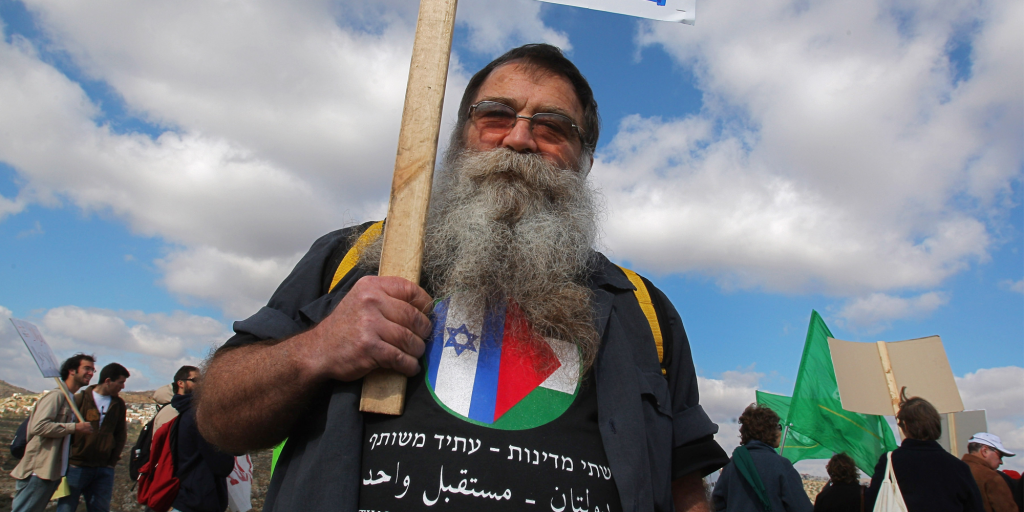
In addition to these legislated restrictions on dissent, below-the-radar forms of pressure have been applied to the media and even to institutions of higher education. Prime Minister Netanyahu has regularly attacked media credibility, and even contributed to delaying the launch of the new public broadcast corporation in 2017. And as acting finance minister and communications minister, he heaped financial burdens on Channel 10, which was considered to be more critical of him.12
Watchdog groups have expressed alarm over the decline in the quality of Israeli democracy. In 2018, the Israel Democracy Index (whose ratings combine scores by World Bank, Freedom House, and the Economist Intelligence Unit) concluded that Israel declined over the previous year on three indicators: civil liberties, rule of law, and the perception of corruption (it also showed an improvement on three indicators and no change in the remaining seven examined).13 When compared with the average scores for 2003 to 2017, five indicators declined in 2018: political rights, civil liberties, freedom of the press, deliberative democracy, and egalitarian democracy. Freedom House itself has downgraded Israel on its ratings for civil liberties, political rights, and freedom for the past two years.14
Watchdog groups have expressed alarm over the decline in the quality of Israeli democracy.
However, despite these regressive trends in Israel, the changes stop short of negating democracy. Israel continues to rank high on international indices overall. Freedom House clearly characterizes Israel as “free,” and political participation is consistently high.15
Israel still ranks higher than some of the “illiberal democracies” of Eastern Europe that are also—not coincidentally—Israel’s new allies and partners: most prominently, Russia and Hungary.16 To the majority of Israelis, the fact that Israel ranks near the bottom when compared to OECD countries seems like quibbling.17 When asked in a survey about six problems in Israeli life, “threats to democracy” ranked fifth, with just 10 percent who ranked it as the most or second most urgent problem.18 In the national elections, the only parties that significantly addressed the question of democracy were two far-right parties competing over how to further constrain the judiciary.19
When considering this slow, continual erosion of liberal democracy, it is tempting but simplistic to blame Benjamin Netanyahu alone. Although he enabled and facilitated such policies during his recent decade in office, to some extent, the changes express the genuine will of a large segment of voters well beyond Likud supporters (who are roughly just one-quarter of all voters). As such, the illiberal approach has been adopted by a range of right-wing Israeli leaders and parties, who often take the lead in advancing bills, or speaking out in support of illiberal policies. Thus, the problem is broader than one politician’s legacy, and will continue to define Israel’s challenges in coming decades, regardless of Netanyahu’s potentially shorter fifth term. To understand this diffuse normalization of illiberal ideas, it is important to understand the public arguments and ideas around the policy shifts.
Redefining Democracy
The changing perceptions of Israeli democracy are not happening in a vacuum; over the past two decades, Israeli society lurched to the right in general, electing almost exclusively right-wing governments in the wake of the Second Intifada, which began in September 2000. The notion of being left-wing has become practically taboo, and the numbers of self-identified left-wingers have dwindled to about one-fifth in surveys.
During this time, the left–right axis in Israel rotated primarily around attitudes toward security and peace, specifically regarding the Palestinians. This is still the case; however, as critics of the occupation policies and peace advocates in Israel repeatedly protest in the name of democracy and human rights, the vocal and powerful right-wing has increasingly done the reverse: they have come to disparage the democratic and human rights norms that undergird the criticism of Israel’s military policy (which many view as a matter of security). During this conversation, no one advocates the end of democracy; these are just the underlying political dynamics that have led to redefining democracy in a way that can contain and support permanent occupation.
Thus, the steady march of policymaking documented earlier in this report has been accompanied by ever-more elaborate public justifications for illiberal reforms, especially during lengthy legislative processes. Supporters of the illiberal direction thus take pride in Israel’s permissive democratic discourse, while developing a worldview that supports eroding specific aspects of liberal democracy.
To be sure, public conversations include opposition arguments by political parties, civil society, academics, cultural figures, and journalists and other commentators, defending liberal democratic norms. Right-wingers regularly complain that the media is dominated by such critics, citing no systematic evidence beyond anecdotes and impressions. Thus, the debate can in fact be vibrant. But invariably, the opposition is branded as leftist, subversive, alarmist, advancing a hidden political agenda of elites, anti-Israel, or traitors conducting an actual coup to overthrow an elected right-wing government. Their arguments are dismissed rather than addressed substantively.
A few core themes in this national discussion highlight the democratic institutions that Israel’s right-wing fervently believes require change.
At the center of the right wing’s rhetorical populism is a reverence for ethno-national identity. Perhaps the best and oldest example (and a further indication that Netanyahu is not solely responsible for illiberalism) is Avigdor Lieberman’s political party, Yisrael Beiteinu, campaigning in 2009 under the slogan “No loyalty, no citizenship!”—in reference to Arab citizens.20 As observed, this outright attack on Israel’s national minority was translated into a series of aggressive anti-Arab legislation between 2009 and 2013, and contributed to the public environment in which the Nation-State Law could pass.
This embrace of ethno-national triumphalism leads to growing calls for constraints on the institutions that give voice to minority rights, and that should protect them in a democracy.
The Supreme Court of Israel—and the Israeli justice system at large—has been under attack for over a decade, arguably starting with actions by justice minister Daniel Friedmann, who was appointed by Netanyahu’s predecessor, Ehud Olmert, and served from 2007 to 2009. Friedmann opposed judicial activism, and now, a decade later, commentators regularly speak of a “dictatorship of the court.”21 Far-right figures have even said that the Supreme Court is responsible for Palestinian attacks. In December 2018, the right-wing portal Rotter published accusations that the Supreme Court had ordered an opening of the security wall running through the West Bank, to provide Palestinians access to a private home; a Palestinian later used the opening to attack a soldier.22 It didn’t matter that, in fact, the army itself made the recommendation, which never went to the Supreme Court at all.23 Many critics are now convinced that legal challenges to military policy led by leftists and human rights groups, which they believe (often incorrectly) to be eagerly supported by the Court, place Palestinian rights above Jewish lives, and therefore should not be considered. These parties and figures relentlessly repeat the broad theme that the court system in general is against “the people.”.
The furthest-right-wing party in Israel today, The Union of Right-Wing Parties, posted an Internet campaign ad stating: “Only the Supreme Court will decide!” with the Hebrew letters for “Supreme Court” crossed out and replaced by “The people!” A slogan of the most extreme faction within the Union was: “We’ll liquidate 1,000 terrorists—and not a single hair of IDF soldiers will fall”—referring implicitly to the potential of legal prosecution.24 Not to be outdone, the New Right party aired the infamous “Fascism”25 spot, which names the policies of the outgoing justice minister to undercut the justice system. The minister concluded, “Smells like democracy to me”26 —the implication being that greater political control over the court system reflects the will of the voters, therefore her reforms are a democratic correction. The New Right party apparently wasn’t far-right enough, as it was ousted in the elections and replaced by the Union—an extreme-right party coalition that includes students and supporters of Rabbi Meir Kahane, whose racist attitudes and policies against Arabs were so extreme that he was eventually banned from running in Israeli elections in 1988. Indeed, one of the current members of the Union of Right-Wing Parties (the leader of its most far-right faction) was banned from running for office by the Supreme Court for similar reasons.27 However, one of the party’s top leaders, who entered the Knesset for his second term in 2019, currently is vying to be appointed as justice minister.
Mirroring certain trends in the United States, there is a deep and growing distrust of the media on the right in Israel.
Mirroring certain trends in the United States, there is a deep and growing distrust of the media on the right in Israel. The prime minister is among the foremost proponents of the idea that the media is a left-wing cabal, committed to toppling him personally. He blames the media relentlessly for either exaggerating or even inventing the corruption allegations against him.28 Opinion articles in the pro-Netanyahu newspaper Israel Hayom lodge lengthy complaints about media bias, as if Israel Hayom itself was not the highest circulating daily paper in Israel (it is). The paper is owned and funded by Sheldon Adelson, who has poured over one billion Israeli shekels into it for the sole purpose of supporting Netanyahu and distributes the paper for free, which surely contributes to its top-ranked circulation.29 Nevertheless, Netanyahu began his political campaign with huge billboards attacking the country’s prominent investigative journalists working on the corruption investigations, insisting “they won’t decide!”30 Many people observing the public discourse are left with an image of the media as an enemy of the people, rather than a public service holding leaders accountable (or forgetting about one that is a direct mouthpiece for the prime minister).
Civil society in Israel, too, is increasingly viewed with suspicion in general—none more so than Israeli human rights groups defending Palestinians from occupation-related human rights violations. Among the Israeli public, these groups are widely considered to be saboteurs. In the December Btselem survey, 60 percent of Israelis agreed that “Human rights NGOs in Israel are working against Israel instead of defending human rights,” including two-thirds of the Jewish respondents. Fifty-six percent of Jews agreed with a statement that such human rights groups are traitors.31
Finally, with greater subtlety, right-wing influencers can be heard arguing that true democracy is majority rule, which they often use interchangeably with “the will of the people.” In this argument, support for minority rights through the media, the courts, and belief in Arab equality destroys majority rule. It is not uncommon to hear that “the left forgot what democracy is.”32
Annexation Approaching Consensus
It is highly convenient to anchor majority rights in Basic Laws and deny all claims of national minority rights, if the national minority is poised to grow larger. But looking at Israel’s citizen body, it’s not clear why the ethnic/religious/national minority would grow: Arab-Palestinians currently make up about 21 percent of the population, and this group has a declining birthrate.33 The policy shift makes greater sense, however, if one considers the demographic change that would accrue as a result of annexation.
In recent years, Israel has advanced policies and increasingly open rhetoric in favor of annexation—formal, informal, partial, or full—in the West Bank.34 One very concrete (but by no means isolated) annexationist policy is the “Arrangements Law,” which provides retroactive legalization of settlements built on privately-owned Palestinian land. The law passed in 2017, but has not been implemented due to legal challenges. Undaunted by the delay, in December 2018, the outgoing government already approved the first stage of a new bill nicknamed “the Arrangements Law II,” with a similar purpose of legalizing West Bank settlements.35
In recent years, Israel has advanced policies and increasingly open rhetoric in favor of annexation—formal, informal, partial, or full—in the West Bank.
In a rhetorical development, in late 2017, the ruling Likud party central committee stated its intention to advance annexation of all of the West Bank (Judea and Samaria, in their language). Prominent right-wing politician and outgoing education minister Naftali Bennett has openly advocated annexation of Area C (60 percent of the West Bank) since 2013. Bills have been proposed to annex the settlement of Maaleh Adumim and other areas.36 Speaker of the Knesset Yuli Edelstein, number two on the Likud list, recently told Haaretz newspaper: “The first thing to do is to apply Israeli sovereignty over Judea and Samaria.”37 He was not alone—four more senior, prominent Likud figures advocated annexation openly, in a video from February 2019.38
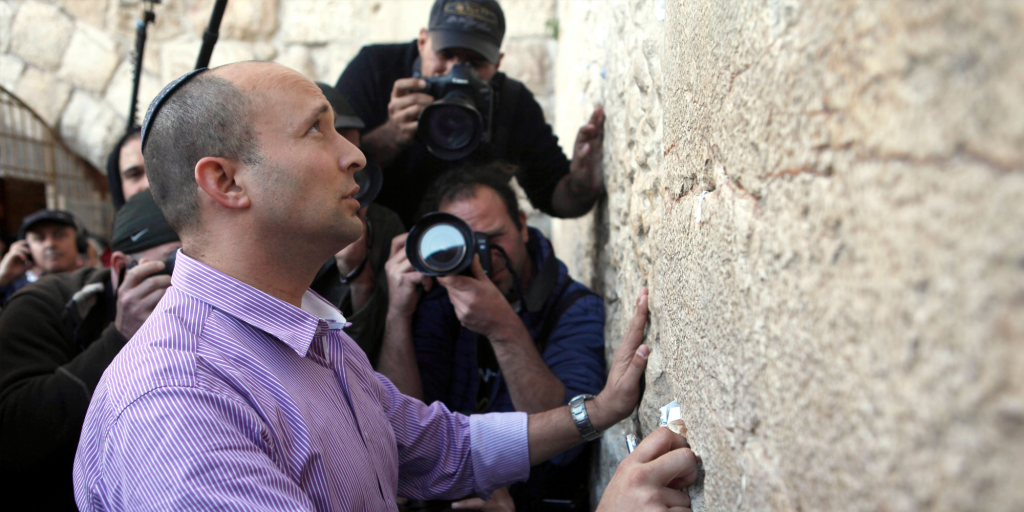
Thus, the pace of bureaucratic, physical, and rhetorical moves toward annexation was already accelerated in recent years. But how serious is the intention?
The election campaign period in 2019 left little doubt. First came the surprise move by U.S. President Donald Trump, signing a proclamation recognizing Israeli sovereignty over the Golan Heights. The land was captured in the 1967 war; Israel passed a law in 1981 extending Israeli (civil) law to the Golan, a form of effective annexation that violates the international position rejecting the acquisition of territories through war. The current Knesset members are already preparing a series of annexation-related bills for discussion after the government is formed.39
Further, in the final days of the campaign, Netanyahu stated to an Israeli interviewer that he would in fact support extending Israeli sovereignty over all Israeli settlements everywhere in the West Bank.40 This can only be accomplished if Israel permanently controls the land surrounding those settlements. Whatever the formal nature of sovereignty, all such moves render Israel’s de facto sovereignty over Palestinians permanent and increasingly irreversible.
Here, the democratic redesign begins to make sense: putting legal protections into place in anticipation of such a change makes it look much more realistic; and the nature of democratic changes points to the most likely version of annexation.
Full annexation of the West Bank would add 2.7 million Palestinians to Israel’s political corpus. If they are given citizenship, that would dramatically shift Israel’s demographic balance, politically. If they are not given citizenship, Israel will instantly be labeled as an apartheid state. This full annexation scenario looks unlikely. But piecemeal annexation, or unnamed/informal annexation, is a much more likely course of action; that is, an accelerated version of the process already underway, and consistent with Israel’s current modus operandi in the occupied areas.
Maaleh Adumim is a single settlement near Jerusalem; most Israelis would welcome annexation there. But Area C is the real prize: a major step that no longer looks out of reach. All settlements in the West Bank are located in Area C.41 Area C comprises over 60 percent of land in the West Bank, wraps around the heavily populated Palestinian areas (designated as Areas A and B), and separates them from each other—effectively shredding the future Palestinian state that most right-wing parties oppose. Right-wingers claim publicly that there are only 80,000 Palestinians living in Area C, and therefore, it is reasonable to offer them citizenship to avoid accusations of apartheid. Moreover, such an approach looks “safe” from the right-wing perspective, given that, in other cases where Israel has offered residents the option to apply for citizenship, such as Druze residents of the Golan Heights and Palestinians in East Jerusalem, most have declined.
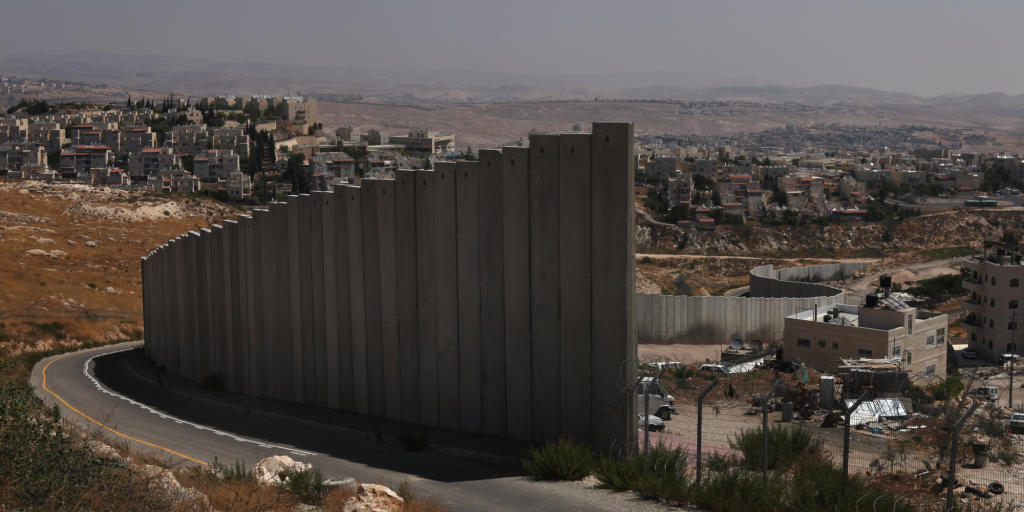
In East Jerusalem, most Palestinians remained permanent residents, who lack the right to vote in national elections. Although they have the right to participate in municipal elections, less than 1 percent does so.42 Only small numbers of Palestinians there have applied for citizenship over the years—barely breaking 1,000 in any given year, with 95 percent remaining residents. Among those who do apply, the state frequently denies the applications, to little publicity or fanfare.43
Similarly, Syrian Druze in the Golan Heights were offered citizenship; of the 24,000 Druze, just 12 percent are reported to hold citizenship, while the others have remained permanent residents.44
However, the most thorough and systematic population studies show that there may be as many as 300,000 Palestinians in Area C.45 In the event that they were offered citizenship, their own desire notwithstanding, Israel’s Palestinian/Arab citizen population could rise to roughly one-quarter of Israel’s citizenry. While that’s not a significant enough difference to change the national character (or government) of Israel, the Palestinians of the West Bank will bring a very different political identity from Israel’s current “1948” Palestinian citizens, or even the Druze. They are likely to inject more forceful demands for national recognition and collective rights, and with greater moral force, given the death of prospects for a Palestinian state. For the West Bank Palestinians, the struggle for national self-determination defines them. Even if they are not offered citizenship, or many decline to apply, the situation of forcible control over their lives in a permanent way will be more transparent, both in Israel and abroad.
If Israel wishes to enact such a policy of annexation, the challenges presented by shifting demographics and new ideas of nationalism are best fended off by weakening the tools of political protest and information, while anchoring the majority identity by law.
If Israel wishes to enact such a policy of annexation, the challenges presented by shifting demographics and new ideas of nationalism are best fended off by weakening the tools of political protest and information, while anchoring the majority identity by law. Legal burdens on Israeli human rights organizations and civil society groups demanding equality would come in handy, too.
Weaker courts, furthermore, would mean that aggrieved Palestinians in the West Bank and their advocates would have less recourse to petition their new, or continued, sovereign ruler. And on a broad normative level, Israelis will have justified an ethno-democracy that permanently denies national recognition for a significant minority of its own citizens, while precluding any possibility of Palestinians fulfilling that identity in their own independent country. Since Israeli politicians openly state that they intend to prevent an independent Palestinian state, it should now be indisputable that small land-bubbles of Palestinian local autonomy would amount to permanent effective Israeli control over the entire West Bank.
A Rights Agenda for Policymakers
The analysis presented in this report does not claim that a decade of democratic erosion was plotted solely to advance annexation. However, much of the undermining of democratic institutions has emerged as Israel’s answer to disputes about its own occupation policies. The answer is that if occupation contradicts liberal democratic norms, Israel chooses the former. And annexation is only the natural extension of occupation, requiring even weaker democratic institutions and a redefinition of democracy itself. Furthermore, if any politician did consciously undertake to undermine legal foundations of liberal democracy to advance annexation, he or she could be described either as conspiratorial, or simply as a leader with a vision.
Israeli policy in the West Bank and Gaza observed here is almost a fait accompli; it will be very difficult to reverse. At the very least, analysts and observers should acknowledge that even what appears to be internal Israeli policy actually affects populations well beyond the Green Line, even if it is not directly about Palestinians. Political analysis can no longer look only to “Israel proper,” but instead must cover all people under Israel’s direct de facto authority, and at the very least in Area C. Such a zone of analysis would, more fairly, include large populations who have no say in choosing the representatives who in fact determine their fate.
Political analysis can no longer look only to “Israel proper,” but instead must cover all people under Israel’s direct de facto authority, and at the very least in Area C.
Next, the transformation of democracy in Israel should be characterized accurately. Accusations of fascism attract attention but are too easily dismissed; but illiberal democracy is a justifiable and more accurate label for the political system. While the term is now commonly used for places with more severe and threatening practices against democracy, the same general trends apply to Israel’s law and institutions: undermining and weakening the judiciary, adopting the language of existential threat to the ethno-national identity, suspicion of outside interference, attempted government oversight of the press, and weakening ethnic and political minority rights as well as civil society.46 In fact, even the countries generally considered to be illiberal democracies (Hungary, Poland, Turkey, or others in which elections are the main feature of democracy but civil liberties are stifled) generally do not control large populations who do not even enjoy equal rights as citizens. When including everyone who lies under Israeli control, the description is more like an illiberal, ethnocratic, selective democracy regime.
If observers internalize that Israel is laying the groundwork for annexation by law, they will be less dependent on speculative interpretations of political statements, such as the question of whether Netanyahu “meant it” in the heat of an election campaign.
In response, one approach would be to demand that subjects governed directly by Israel—whether formally or informally annexed—be treated as equals.
The unfortunate reality is that for Palestinians, even an illiberal, ethnocratic democracy would be an improvement over a military regime. If offered citizenship, and if any accept, at least they would share equal de jure status. Israel’s civil society infrastructure still functions in a fairly vibrant way despite challenges, and could help advance equality, even within the encroaching limitations on their work. However, in recognition of Israel’s control and intentions for permanent control in the future, the expectation of equal rights ought not to be predicated on formal citizenship, which will be fraught for years to come. Israel owes all of its subjects equality in all areas of life regardless of citizenship status, today.
A second approach would be to seek revised forms of resolution to the conflict that might still offer Palestinians genuine independence. This would remove Israel’s control over their fate. There are still ways to achieve Palestinian self-determination, despite the obsolete nature of the old two-state solution, such as decentralized or confederation models.47
Inside Israel, in the long term, conflict resolution stands to reduce the source of social tension that originally fueled the anti-democratic trends in the first place. Conflict resolution of course should be viewed as win-win.
However, any proposed framework for Palestinian independence must measure the actual level of control Palestinians will have over their lives on a daily basis. In light of the possibility that a new plan will soon emerge from the Trump administration, the truth of Palestinian sovereignty should be the framework for assessing the plan. If the plan in fact leaves Israel ultimately in control over Palestinians, the same demands for juridical equality should be met.
As for Israel itself, ultimately, Zakaria argues why liberal democracy is preferable in general: “Democracy without constitutional liberalism is not simply inadequate, but dangerous, bringing with it the erosion of liberty, abuse of power, ethnic divisions and even war.”48
Liberal democracy should be the ultimate goal for Israel, under any future borders.
This report was written with support from the Carnegie Corporation of New York.
Cover Photo: Prime Minister of Israel, Benjamin Netanyahu, and his wife, Sara, greet supporters during his speech in Tel Aviv, Israel. Source: Amir Levy/Getty Images
Notes
- Fareed Zakaria, “The Rise of Illiberal Democracy,” Foreign Affairs 76, no. 6 (November/December 1997).
- Both Likud and the main challenger, Blue and White, won 35 seats out of a total of 120 seats in the Knesset, with just 0.03 percent advantage for Likud.
- “Read the full Jewish Nation State Law,” Jerusalem Post, July 18, 2018, https://www.jpost.com/Israel-News/Read-the-full-Jewish-Nation-State-Law-562923.
- “Anti-Democratic Initiatives Advanced by the 20th Knesset,” Association for Civil Rights in Israel, https://campaigns.acri.org.il/democracy/.
- “Israeli Supreme Court upholds ‘Admissions Committees Law’ that allows Israeli Jewish communities to exclude Palestinian Arab citizens,” Adalah, September 17, 2014. https://www.adalah.org/en/content/view/8327
- This is not intended as a comprehensive review of all policies that might be considered anti-democratic over the past decade, which would be lengthy and detailed. These developments are tracked closely by local NGO watchdogs. The goal here is to highlight examples that are indicative of the specific nature of democratic erosion.
- Raoul Wootliff, “Bill conditioning arts funding on ‘loyalty’ clears first Knesset hurdle,” Times of Israel, November 6, 2018, https://www.timesofisrael.com/bill-conditioning-arts-funding-on-loyalty-clears-first-knesset-hurdle/.
- Law to Amend Cooperative Societies Ordinance (No. 8), 5771-2011 (Unofficial English translation by Adalah, The Legal Center for Arab Minority Rights in Israel, https://www.adalah.org/uploads/oldfiles/Public/files/Discriminatory-Laws-Database/English/12-Admissions-Committees-Law-2011.pdf).
- Peter Beaumont, “Israel passes law to force NGOs to reveal foreign funding,” The Guardian, July 12, 2016,
https://www.theguardian.com/world/2016/jul/12/israel-passes-law-to-force-ngos-to-reveal-foreign-funding. Also: https://m.knesset.gov.il/News/PressReleases/pages/press120716.aspx. - Known as Amendment 28: “Israel: Prevention of Entry of Foreign Nationals Promoting Boycott of Israel” Library of Congress,
https://www.loc.gov/law/foreign-news/article/israel-prevention-of-entry-of-foreign-nationals-promoting-boycott-of-israel/ - Raoul Wootliff, “Israel passes law limiting activities, funding for get-out-the-vote groups,” Times of Israel, March 21, 2017,https://www.timesofisrael.com/israel-passes-law-limiting-activities-funding-for-get-out-the-vote-groups/.
- Nati Tucker, “Channel 10 to Fight Netanyahu’s Demand for $4.3M in License Fees,” Haaretz, May 21, 2015, https://www.haaretz.com/israel-news/business/.premium-channel-10-to-fight-pm-s-demand-for-4-3m-in-fees-1.5364690. Channel 10 was eventually forced to merge with another station, and no longer broadcasts independently—in part due to regulatory changes to the Israeli television market, alongside its weaker financial position relative to the other stations. Yoav Stolar and Adrian Pilut, “Concern over collapse favored merger of Reshet and Channel 10,” Calcalist (Hebrew), August 9, 2018, https://www.calcalist.co.il/marketing/articles/0,7340,L-3743987,00.html.
- Tamar Hermann, Or Anabi, Ella Heller, Fadi Omar, “Israel Democracy Index 2018,” Israel Democracy Institute, Jerusalem, 2018, 31, https://en.idi.org.il/publications/25031.
- “Freedom in the World 2018—Israel,” Freedom House,
https://freedomhouse.org/report/freedom-world/2018/israel; “Freedom in the World 2019—Israel,” Freedom House, https://freedomhouse.org/report/freedom-world/2019/israel. - Tamar Hermann, Or Anabi, Ella Heller, Fadi Omar, “Israel Democracy Index 2018,” Israel Democracy Institute, Jerusalem, 2018, 31, https://en.idi.org.il/publications/25031.
- Israel’s aggregate score is 78 (out of a 100—the top score). Hungary—70. Poland 84. Russia—20. Brazil—75. Philippines—61. See “Freedom in the World 2019—Israel,” Freedom House,
https://freedomhouse.org/report/countries-world-freedom-2019?order=field_fiw_aggregate_score&sort=desc. - Specifically, Israel ranks very low on civil liberties and freedom of the press (sixth percentile compared to the OECD countries) and on egalitarian democracy and participatory democracy (eleventh percentile compared to the OECD). Tamar Hermann, Or Anabi, Ella Heller, Fadi Omar, “Israel Democracy Index 2018,” Israel Democracy Institute, Jerusalem, 2018, https://en.idi.org.il/publications/25031.
- Dahlia Scheindlin, “Public Opinion Survey: Btselem,” Btselem, December 2018; N=700, Jews and Arabs, error +/-3.7 percent.
- Dahlia Scheindlin, “In Israel’s election, only the far right is talking about democracy,” +972 Magazine, March 22, 2019, https://972mag.com/in-israels-elections-only-the-far-right-is-talking-about-democracy/140679/.
- Jon Bernstein, “No loyalty, no citizenship,” NewStatesman, November 11, 2010, https://www.newstatesman.com/international-politics/2010/11/jewish-state-israel-arab.
- Yoram Sheftel, “Regardless of election results, the High Court will continue to its hard-fisted rule,” Maariv (Hebrew), February 22, 2019, https://www.maariv.co.il/journalists/Article-686220.
- Rotter forums, December 14, 2018, http://rotter.net/forum/scoops1/520018.shtml.
- Shlomo Pioterkovski, “The Wall, the Scandal, and the High Court of Justice,” Arutz 7 (Hebrew), December 16, 2018, https://www.inn.co.il/News/News.aspx/389164.
- Otzmah Yehudit website, https://440.co.il/oz/תרומות/.
- Ayelet Shaked (Facebook video), “The Perfume that the Leftists will not Like,” https://www.facebook.com/watch/?v=367580377427860.
- Dahlia Scheindlin, “In Israel’s election, only the far right is talking about democracy,” +972 Magazine, March 2019, https://972mag.com/in-israels-elections-only-the-far-right-is-talking-about-democracy/140679/.
- “High Court bars far-right party leader Ben Ari from running in elections,” Times of Israel, March 17, 2019, https://www.timesofisrael.com/high-court-bars-far-right-party-leader-ben-ari-from-elections/.
- In a speech following the attorney general’s announcement of indictment subject to a hearing, Netanyahu argued that “the public is flooded with ridiculous and vicious tales . . . what is happening in the media now? You heard now and you will hear more. Special broadcasts, celebrations in the studios . . . there is tremendous pressure, by the media, by the Left, and also by judiciary bureaucrats to bring these false charges against me before the elections.” Kobi Nachshoni and Itamar Eichner, “Netanyahu responded: ‘Unprecedented Witch Hunt, Blood Libel,’“ Ynet (Hebrew), February 28, 2019, https://www.ynet.co.il/articles/0,7340,L-5471690,00.html.
- Sever Plocker, “Netanyahu’s media obsession is brought to you by an American billionaire,” Ynet, March 4, 2019, https://www.ynetnews.com/articles/0,7340,L-5473380,00.html.
- Jonathan Lis, “Netanyahu’s party escalates attack on media with billboard blasting journalists,” Haaretz, January 20, 2019, https://www.haaretz.com/israel-news/elections/.premium-netanyahu-s-party-escalates-attack-on-media-with-billboard-blasting-journalists-1.6853142.
- Dahlia Scheindlin, “Public Opinion Survey: Btselem,” Btselem, December 2018; N=700, Jews and Arabs, error +/-3.7 percent.
- Anecdotally, from personal conversations.
- Lilach Baumer, “Israel’s Population on Track to Reach 10 Million in 2024,” Calcalist, September 7, 2018, https://www.calcalistech.com/ctech/articles/0,7340,L-3745804,00.html.
- Omar M. Dajani, “Israel’s Creeping Annexation,” American Journal of International Law 111 (2017): 51–56.
- Shahar Hai and Tova Tzimuki, “Ministerial Committee Approves Advancement of ‘Arrangements Law II’—AG: ‘Unconstitutional,’” Ynet, December 16, 2018, https://www.ynet.co.il/articles/0,7340,L-5426996,00.html.
- Jonathan Lis, “Netanyahu Blocks Settlement Annexation Bill From Coming to a Vote,” Haaretz, February 12, 2018, https://www.haaretz.com/israel-news/netanyahu-blocks-settlement-annexation-bill-from-coming-to-a-vote-1.5809143.
- Dina Kraft, “Haaretz Poll: 42% of Israelis Back West Bank Annexation, Including Two-state Supporters,” Haaretz, March 24, 2019, https://www.haaretz.com/israel-news/israeli-palestinian-conflict-solutions/.premium-42-of-israelis-back-west-bank-annexation-including-two-state-supporters-1.7047313.
- Video posted by the “Sovereignty” movement, February 5, 2019, https://www.facebook.com/noaribonuot/videos/299419567427548/.
- Gidon Alon, “Sovereignty in Judea and Samaria and limitations on the High Court—legislation on the way,” Israel Hayom (Hebrew), May 4, 2019, https://www.israelhayom.co.il/article/654699.
- “Israel’s Netanyahu vows to annex West Bank settlements if re-elected,” Associated Press, April 7, 2019, https://www.nbcnews.com/news/world/israel-s-netanyahu-vows-annex-west-bank-settlements-if-re-n991761.
- This excludes settlements in East Jerusalem located over the Green Line/1949 Armistice lines, which Israel annexed in 1967f.
- Eetta Prince-Gibson, “Why there’s no Palestinian protest vote in Jerusalem,” Foreign Policy, November 19, 2019, https://foreignpolicy.com/2018/11/19/why-theres-no-palestinian-protest-vote-in-jerusalem-israel-municipal-palestinian-authority-ramadan-dabash-aziz-abu-sarah/
- Nir Hasson, “All the ways East Jerusalem Palestinians get rejected in bid to become citizens,” Haaretz, January 15, 2019, https://www.haaretz.com/israel-news/.premium-east-jerusalem-palestinians-face-uphill-battle-in-bid-for-israeli-citizenship-1.6844543.
- Kyle S. Mackie, “An Experiment in Democracy: Torn Between Syria and Israel, Golan Druze Divided Over First Election,” Haaretz, September 8, 2018, https://www.haaretz.com/israel-news/.premium-torn-between-syria-and-israel-golan-druze-divided-over-first-election-1.6459572.
- “West Bank | Area C: key humanitarian concerns,” United Nations Office for the Coordination of Humanitarian Affairs, Occupied Palestinian Territories, https://www.ochaopt.org/content/west-bank-area-c-key-humanitarian-concerns.
- Arch Puddington, “Breaking Down Democracy: Goals, Strategies, and Methods of Modern Authoritarians,” Freedom House, June 2017, 36, https://freedomhouse.org/report/special-reports/breaking-down-democracy-goals-strategies-and-methods-modern-authoritarians.
- Dahlia Scheindlin, “An Israeli Palestinian Confederation can work,” Foreign Policy, June 29, 2018, https://foreignpolicy.com/2018/06/29/an-israeli-palestinian-confederation-can-work/.
- Fareed Zakaria, “The Rise of Illiberal Democracy,” Foreign Affairs 76, no. 6 (November/December 1997).


